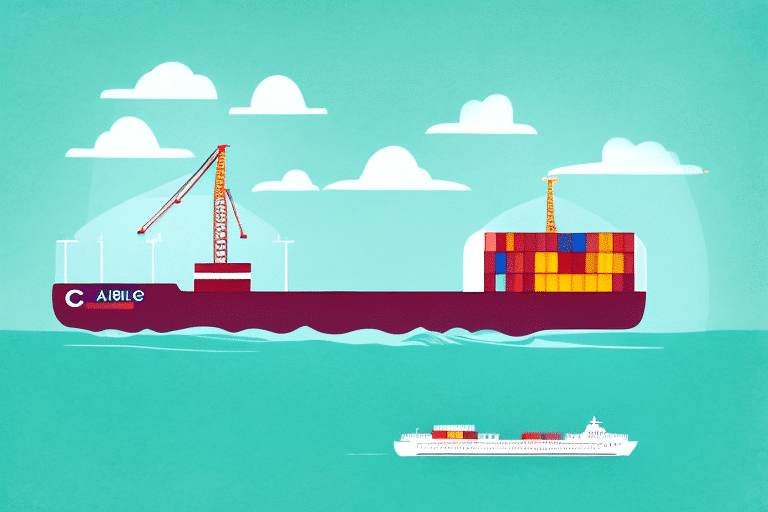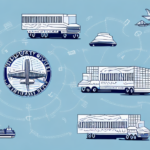An Introduction to Freight Shipping
Freight shipping is a cornerstone of global trade and commerce, facilitating the movement of goods by land, sea, and air. This complex process involves the coordination of carriers, freight forwarders, and shippers to ensure that items are transported safely, efficiently, and on time. In this article, we delve into the various modes of freight shipping, the critical role it plays in global trade, selecting the right carrier, the function of freight forwarders, best practices for cost-effective shipping, regulations and compliance, tools for real-time tracking, managing freight claims, industry trends, and future predictions for freight shipping.
Types of Freight Shipping: Understanding the Different Modes
Land Transportation
Land transportation is primarily used for domestic shipping and involves trucking and rail transport. It is versatile and can handle a wide variety of goods, making it a popular choice for many businesses.
Sea Transportation
Sea freight is essential for international shipping, offering different categories:
- Bulk Shipping: Suitable for loose, unpackaged items like coal, grain, and oil.
- Container Shipping: Used for packed items, ensuring safe and efficient handling.
- Breakbulk Shipping: Ideal for oversized or heavy items that don't fit in standard containers.
- Roll-on/Roll-off (Ro-Ro): Designed for transporting vehicles and other rolling stock.
Air Transportation
Air freight is the fastest mode of transportation, categorized into:
- Parcel Delivery: Best for lightweight items.
- Express Delivery: Suited for time-sensitive shipments.
- Freight Delivery: Handles large, heavy items that are not feasible for land or sea transport.
Environmental Considerations
Each transportation mode has different environmental impacts. Land transportation generally produces more emissions per ton of freight compared to sea and air. However, sea transportation can negatively affect marine ecosystems, and air transportation, while efficient in time, has a high carbon footprint. Choosing the right mode involves balancing efficiency, cost, and environmental responsibility.
The Importance of Freight Shipping in Global Trade
Freight shipping is vital for economic growth, enabling businesses to reach international markets and facilitating the exchange of goods and services across borders. According to Statista, the global freight shipping market was valued at approximately $12.7 billion in 2020 and is projected to grow significantly by 2025.
Economic Impact
Freight shipping allows for the efficient transportation of large quantities of goods, which is essential for industries like agriculture and manufacturing. It supports economies by creating jobs, enabling trade, and fostering global supply chains.
Environmental Challenges
Freight shipping contributes to greenhouse gas emissions, impacting climate change. To mitigate this, many companies are adopting sustainable practices such as using electric or hybrid vehicles and alternative fuels like biofuels.
Choosing the Right Carrier for Your Freight Shipping Needs
Factors to Consider
- Type of Cargo: Different carriers specialize in various types of goods.
- Shipment Location: Domestic vs. international shipping may require different carriers.
- Transportation Mode: Choose based on speed, cost, and nature of the cargo.
- Carrier Reliability: Assess the carrier’s track record for safety and on-time delivery.
- Insurance and Compliance: Ensure the carrier offers adequate insurance and complies with relevant regulations.
Customer Service
Excellent customer service includes real-time tracking, effective communication, and responsive support. These factors are crucial for ensuring shipments arrive on time and in good condition.
Pricing and Payment Options
Compare carrier pricing structures and payment terms to find options that align with your budget and financial preferences.
The Role of Freight Forwarders in the Shipping Industry
Logistics Management
Freight forwarders act as intermediaries between shippers and carriers, managing the logistics of transportation. They navigate complex regulations, handle customs procedures, and coordinate with various parties to ensure smooth shipment processes.
Insurance and Risk Management
Freight forwarders offer cargo insurance, providing protection against potential losses or damages during transit. They also assist in supply chain management, optimizing routes and transportation modes for efficiency and cost-effectiveness.
Timely Delivery
By coordinating with carriers and tracking shipments, freight forwarders ensure that goods are delivered on schedule. They provide updates to shippers, enhancing transparency and reliability.
Best Practices for Efficient and Cost-effective Freight Shipping
Optimizing Shipment Routes
Careful planning of shipment routes can minimize transit times and reduce costs. Utilizing software and logistics solutions can help in route optimization.
Consolidating Shipments
Combining multiple shipments into a single load can significantly lower shipping costs and improve efficiency.
Minimizing Handling and Storage
Reducing the number of times cargo is handled or stored decreases the risk of damage and loss, leading to cost savings.
Choosing the Right Transportation Mode
Selecting the appropriate mode based on the type of goods, distance, and delivery urgency is crucial for balancing cost and efficiency.
Regulations and Compliance in Freight Shipping: What You Need to Know
International and Domestic Regulations
Freight shipping is governed by various regulations at international, national, and local levels, including customs, safety, trade, and environmental laws. Non-compliance can result in hefty fines and shipment delays.
Staying Updated
Shippers must stay informed about the latest regulatory changes. Resources such as industry associations and government agencies provide valuable guidance and updates.
Security Measures
Protecting freight from theft and unauthorized access is essential. Implementing secure packaging, tracking systems, and partnering with trusted carriers enhances security.
Tracking Your Freight: Tools and Technologies for Real-time Visibility
GPS Tracking
GPS technology allows shippers to monitor the real-time location of their shipments, providing accurate and up-to-date information on delivery progress.
Electronic Data Interchange (EDI)
EDI facilitates the real-time exchange of information between shippers and carriers, enabling quick identification and resolution of issues during transportation.
Real-time Supply Chain Management Systems
Comprehensive supply chain management systems offer end-to-end visibility, from origin to destination, allowing for informed decision-making and operational optimization.
Handling Freight Claims and Disputes: Tips for Successful Resolutions
Effective Communication
Establishing clear communication channels between shippers and carriers is vital for resolving claims and disputes. This includes setting expectations for response times and providing regular updates.
Understanding Legal Frameworks
Familiarity with laws such as the Uniform Commercial Code and the Carmack Amendment is essential for navigating claims and disputes effectively.
Maintaining Accurate Records
Keeping detailed records of shipments, communications, and contractual agreements supports the resolution process and provides evidence when necessary.
Legal Counsel
Working with legal professionals specializing in transportation law can aid in addressing complex disputes and ensuring compliance with relevant regulations.
Trends and Innovations in the Freight Shipping Industry
Advanced Technologies
The adoption of drones and autonomous vehicles is revolutionizing last-mile delivery, enhancing speed and efficiency.
Blockchain Technology
Blockchain offers improved traceability and security in the supply chain, ensuring transparency and reducing the risk of fraud.
Sustainability Initiatives
Efforts to reduce carbon emissions through sustainable practices, such as using alternative fuels and optimizing logistics, are becoming increasingly important.
The Future of Freight Shipping: Predictions and Expectations
Growth and Expansion
The freight shipping industry is expected to continue its growth trajectory, driven by increasing global trade and technological advancements.
E-commerce Influence
The rise of e-commerce and the demand for same-day delivery are pushing the industry towards faster and more efficient shipping solutions.
Regulatory Complexity
As global trade evolves, so do the regulations governing it. Shippers and carriers must adapt to more intricate compliance requirements to stay competitive.
Technological Integration
Integration of AI, machine learning, and IoT will further enhance efficiency, predictive maintenance, and overall supply chain management.
In conclusion, freight shipping remains a vital component of global trade, underpinning economic growth and connectivity. By understanding the diverse modes of transportation, selecting the right partners, adhering to best practices, and embracing emerging technologies, businesses can navigate the complexities of freight shipping to ensure their goods are delivered safely, efficiently, and on time.






















